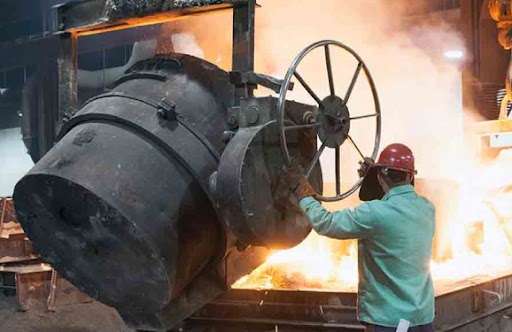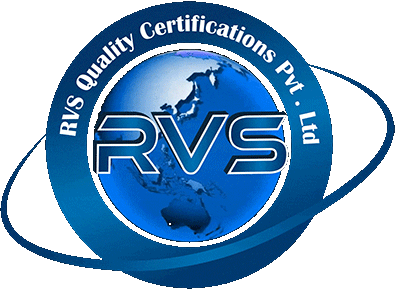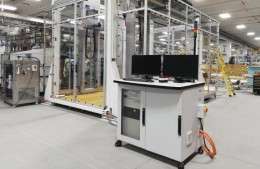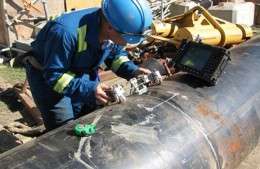I have been out of industrial activity after completing my graduation for about 2 years, then RVS Quality Certifications Pvt Ltd has changed my outlook on my career. Adopting a course in NDT has helped me launch my career.
Revolutionizing Industrial Efficiency with FPT Equipment
- By: Admin

In the fast-paced world of manufacturing, technological advancements are constantly shaping the industry's landscape. Among the many components that contribute to efficient and high-quality production, FPT Equipment Suppliers, titanium alloys, and casting manufacturers stand out as key players. In this blog post, we will explore how these elements work together to revolutionize industrial efficiency, offering new possibilities and improved outcomes for various sectors.
FPT Equipment Suppliers: Enhancing Precision and Automation
FPT equipment suppliers play a crucial role in providing cutting-edge machinery and technology to various industries. With a focus on precision and automation, these suppliers empower manufacturers to optimize their production processes and streamline operations. From CNC machines to robotic systems, FPT equipment suppliers offer a wide range of solutions tailored to meet specific manufacturing requirements.
The integration of advanced technologies, such as artificial intelligence and machine learning, enables FPT equipment to adapt to real-time data, enhance production efficiency, and reduce human error. Moreover, these suppliers often provide comprehensive training and technical support to ensure optimal utilization of their equipment, maximizing productivity and minimizing downtime.
Titanium Alloys: Strength, Durability, and Lightweight Design
Titanium alloys have gained significant popularity in various industries due to their exceptional properties. Known for their strength, durability, and lightweight nature, these alloys offer manufacturers a wide range of possibilities when it comes to design and functionality.
In sectors like aerospace, automotive, and medical, Titanium Alloys are highly sought after for their ability to withstand extreme temperatures, corrosion resistance, and excellent mechanical properties. The integration of titanium alloys into manufacturing processes allows for the creation of lighter components, leading to improved fuel efficiency, increased payload capacity, and enhanced performance.
Casting Manufacturers: Precision and Customization
Casting is a widely used manufacturing process that involves pouring molten material into a mold to create complex shapes and structures. Casting manufacturers play a pivotal role in transforming raw materials, such as metals and alloys, into finished products with high precision and customization.
Utilizing advanced techniques like investment casting, sand casting, and die casting, manufacturers can produce intricate components with consistent quality and dimensional accuracy. This process enables the creation of complex geometries that are otherwise difficult to achieve through traditional machining methods. With the expertise of casting manufacturers, industries can push the boundaries of design, resulting in innovative products and improved performance.
Conclusion
The convergence of FPT equipment suppliers, titanium alloys, and Casting Manufacturers is revolutionizing industrial efficiency across multiple sectors. The precision and automation provided by FPT equipment enhance manufacturing processes, improving productivity and reducing errors. Titanium alloys offer exceptional strength, durability, and lightweight design, leading to enhanced performance and fuel efficiency in industries like aerospace and automotive. Casting manufacturers provide the means to create complex shapes with precision and customization, enabling innovation and improved product functionality.
As technology continues to advance, we can expect further integration and optimization of these key elements, unlocking new possibilities for industrial efficiency. Manufacturers should embrace these advancements and collaborate with industry experts to stay ahead in today's competitive market. By harnessing the power of FPT equipment, titanium alloys, and casting techniques, industries can achieve higher productivity, superior product quality, and ultimately, a brighter future for manufacturing.
RVS is the absolute best value to learn Aerospace NDT Training Course to nurture my skills. I am completely satisfied with how affordable the service they provide. Thanks RVS Team for constant support.
I would like to thank RVS for their time and patience in helping me learn and grow with my NDT courses. I was able to work and learn at the same time, with no pressure. I would recommend RVS to anyone seeking to work and take courses at the same time. I accomplished the course and today I'm a Certified PCN Level II UT engineer.
RVS helped our new hires to acquire the comprehensive training they need, as well as for refresher courses for our current employees. This has worked well for us in obtaining the necessary NDT certifications.
Just a few lines to express my gratitude for your outstanding service over the past year. We would have no issue in referring to your organisation because of your customer devotion and professionalism.
NDT is employed in a wide range of industries, including oil and gas, aerospace, energy, power, nuclear, and transportation, with nearly endless career opportunities. A job in NDT is extremely dynamic, and ongoing training is required.
One of the advantages of a four-year NDT programme is that students can study in a more focused and instructive manner. For graduates, this offers up a plethora of new NDT employment options, including quality assurance, management, engineering design, research, NDT training, and teaching.
Non-Destructive Testing (NDT) Training Courses - Levels 1, 2 and 3.
The PCN (Personnel Certification in Non-Destructive Testing) is a programme that meets the BS EN ISO 9712 requirements for NDT technicians and supervisors. It is founded in the United Kingdom, but it has an impact on a number of countries in the European Union.








